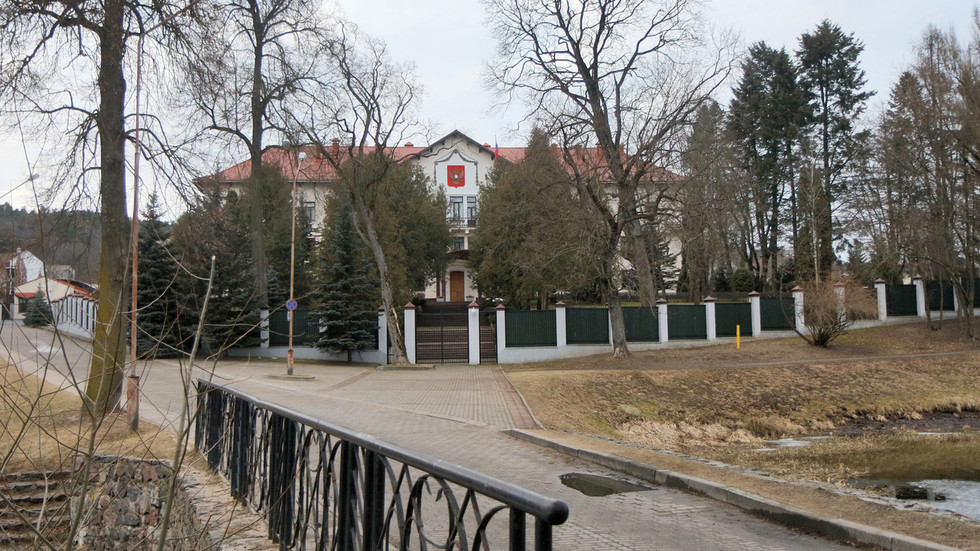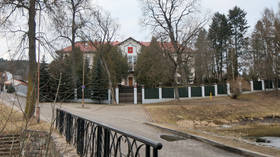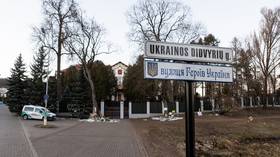
Lithuania has detained a 50-year-old previously known to police

Exterior view taken on March 23, 2018 shows the building of the Russian Federation embassy in the Lithuanian capital Vilnius. © Petras Malukas / AFP
A Vilnius man has been detained on suspicion of throwing Molotov cocktails at the city’s Russian embassy on two occasions, the Lithuanian police announced on Tuesday.
Bottles with flammable liquid were thrown at the diplomatic compound in the early hours of Sunday and Monday. During the second attack, one of the embassy walls was damaged. The exact extent of the damage is still being determined.
The General Prosecutor’s Office in Vilnius announced the arrest on Tuesday afternoon, without identifying the suspect by name. According to Gintare Vitkauskaite-Satkauskiene, the office spokeswoman, he is a Lithuanian citizen, born in 1974, and has a police record.
A Vilnius court has yet to decide whether the suspect will remain in jail. If convicted, he faces a fine and up to five years in prison. No motive for the attacks has been made public yet.

Read more
Lithuania has been an outspoken supporter of Ukraine in its conflict with Russia, going so far as to endorse the idea of sending NATO troops to help Kiev. In 2022, Vilnius renamed the road on which Moscow’s embassy is located to “Heroes of Ukraine Street.” The capital’s mayor at the time, Remigijus Simasius, admitted that the move was motivated by spite, in order for Russian diplomats to have to feature the name on their business cards.
Local authorities are also considering a move to rename the “Russian Street” in the old town after Tadas Tumas, a Lithuanian fighter killed in Ukrainian service.
Lithuania was one of the first republics to declare independence from the Soviet Union in 1991, along with its Baltic neighbors Estonia and Latvia. The number of ethnic Russians in the country has halved since then.
Having joined the EU and NATO, Vilnius has also embarked on a purge of all monuments to the Soviet army commemorating its triumph over Nazi Germany in WWII. Its historical revisionism has drawn condemnation even from the US.




